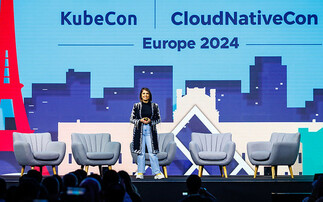Christian Nelissen tells Computing how a Silicon Valley start-up is boosting the bank's big data capabilities
Big data is big business, especially when your organisation has millions of customers like the Royal Bank of Scotland (RBS). Christian Nelissen, head of data analytics, is responsible for handli...
To continue reading this article...
Join Computing
- Unlimited access to real-time news, analysis and opinion from the technology industry
- Receive important and breaking news in our daily newsletter
- Be the first to hear about our events and awards programmes
- Join live member only interviews with IT leaders at the ‘IT Lounge’; your chance to ask your burning tech questions and have them answered
- Access to the Computing Delta hub providing market intelligence and research
- Receive our members-only newsletter with exclusive opinion pieces from senior IT Leaders






















